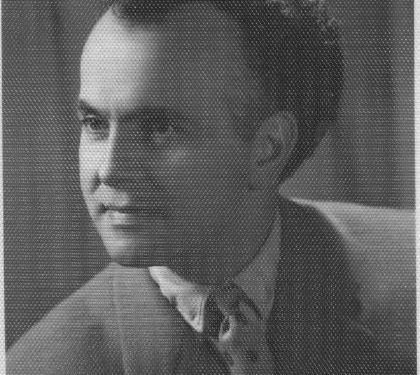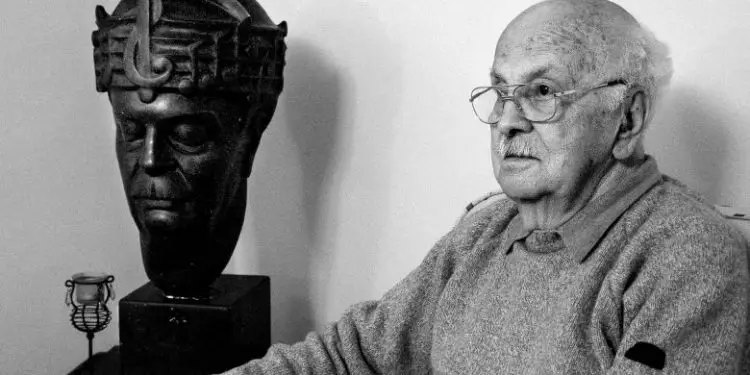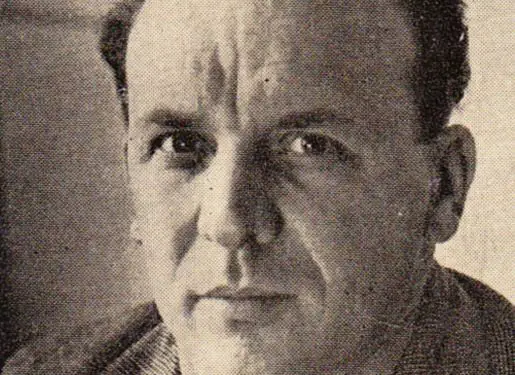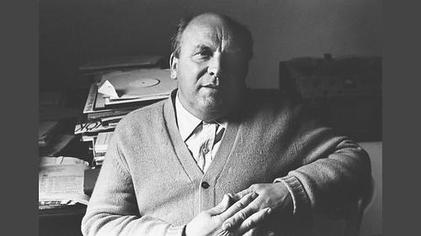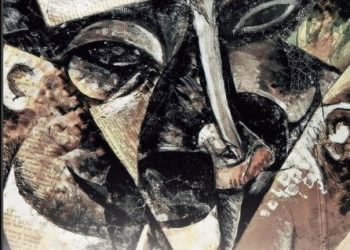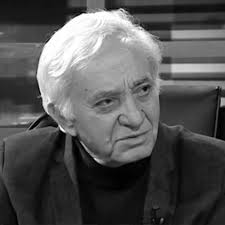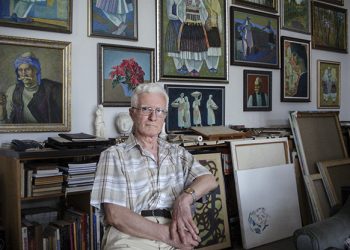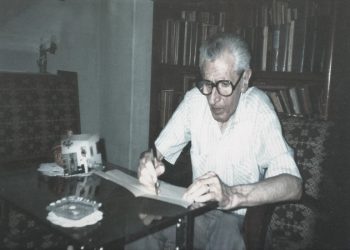Dashnor Kaloçi
Memorie.al publishes the unknown story of the University of London, Albert Lancaster Lloyd, one of the best folklore scholars of England, who studied folk music, wrote songs and produced and produced various records in this field. , where in his work he concentrated mainly in Southeast Europe, making various recordings, in some Balkan countries such as: Albania, Bulgaria and Romania, etc., but he also made recordings in England and the USA. The letter that Lloyd sent in 1958 to the Committee for Friendly and Cultural Relations with the Outer World in Tirana, where he expressed his sincere congratulations to the chairman of that committee, for the publication of the book “Folk Dances in Albania”, authored by the ethnomusicologist of known Albanian, Prof. Ramadan Sokoli, where some of his writings, he translated into English and published in the “Journal of the International Folus Muzik Consill”, such as the study: “Rhythm in our folk music”, which was published in a review of studies, about the music of some peoples of Europe. How was the arrival in communist Albania of the British folk scholar, who was always accompanied by his colleague, Sokoli (under the strict surveillance of the State Security organs) and his impressions and assessments of Albania and his colleagues in the small Balkan country, after which he was fascinated by his folklore!
It was the end of October 1982, when a group of Albanian scholars of Folklore and Ethnomusicology sent a letter to Nexhmije Hoxha (Director of the Institute of Marxist-Leninist Studies), asking her to consider the possibility of publishing a obituary in our press, for University of London professor Albert Lancaster Lloyd, who had passed away that day, in one of the clinics of the British capital, London.
Who was Albert Lloyd?
Albert Lloyd, was one of the few personalities of world art and culture, who had been able to tear the iron curtain of the communist regime of Enver Hoxha, before the ’90s and establish contacts, visiting his colleagues several times in the small communist country of the Balkans. Bert Lloyd, was born in 1908 to parents who were very fond of music, being singers of folk music. He immigrated to Australia (as an economic immigrant) in the early 1920s, and at the age of 15, he devoted himself entirely to folklore and music, collecting folk songs that he had heard as a child when his parents sang to him as they put him to sleep. When Lloyd returned to London, after nine years of emigration, he held in his hands a large package of books, in which he had musical exercises, various ballads, which he had learned in the meadows and pastures, there between the stalls distant shepherds he had frequented, for nearly a decade.
After this friendship that prof. Ramadan Sokoli and Albert Lloyd created with each other, the well-known Albanian ethno-musicologist, could not help but respond to the friend of his English colleague and he took the courage to send him a letter, where he wrote, among other things:
“Dear Mr. Lloyd
I express my best thanks to you for reminding me, with this beautiful postcard, congratulations on the New Year. Lessons, research, new studies, have prevented me from responding faster, as if I had decided. Trusting in your generosity, I believe you will feel me. Driven by your very kind interest and your generous thought that you can find some value in my writings, I dared to send you a modest monograph on ‘Our Folk Melody’.
The summary in French, I will not give you except the scheme, on which the work is based. As you will see, the so-called monograph is not a publication of this year and I already see the flaws. It’s up to me to signal to you that with all the full attention required in the press, many mistakes have been saved, precisely through musical examples. I failed to correct it, not even the most common Errata Corrige! As it seems to me to date, no one has read it, except me…!
But I am not very worried about the silence of the press, because work is life itself for me!.! It would be very valuable to me, for you to say honestly, your view on this subject. Rest assured, you will do me the utmost favor, telling me every evil that work deserves. Last year, a long paper was also published on “Humor and Satire in Our Folk Lyrics”, where I wanted to research for myself, the way our people felt and laughed.
A few months ago, a monograph on ‘Our Popular Dramatics’ was published. This was not an easy undertaking for me, it was about something unstudied to us. It is not just a matter of filling in the gaps and illuminating specific dark spots, but also starting the treatment and channeling the search. It is known that the conclusions of scientific works depend, and not infrequently, on the conditions and means.
Recently, I published a modest paper ‘On Our Popular Meteorology’, while now I am finishing a book entitled: ‘Our Childish Folklore’ which will most likely intrigue me for a long time. As you can see, I am moving from one job to another, by the end of this year, a book will finally be published, my volume on “The Morphology of our Musical Folklore”. “Excuse me, Mr. Lloyd, and feel that I’m not talking about anything but my job.”
Lloyd: Albania is a rare country!
During the third and last visit of the great world-famous musicologist, Albert Lloyd, to Albania in early June 1979, he gave an interview, which was the first and last for him in the Albanian press. The purpose of that visit for Lloyd was to get acquainted with the Albanian ethno-musicology and folklore of our country, after which he was fascinated by its great wealth. He intended, in this regard, to prepare a book on Albanian folk music. Regarding this, among other things in that interview, Lloyd said: “I have three goals that motivate me to write such a book.
First: as a folklore researcher I have been very impressed by the originality of Albanian folk music, which in many respects, differs from other folk music of Europe and often it offers spectacular phenomena.
Second: there is very little data on Albanian folk music, even in the most advanced Western magazines. So, whatever I write, this will constitute not only something new for the ordinary reader, but also for the specialist.
But the third, and most important, is that I nurture an endless admiration for Albania. My wish is to expand the knowledge of the people and their concept on the History of Albania with a publication on Albanian Folk Music. Let me make clear its wars and aspirations, because in England, few people understand Albania, very little are known about this country. And it seems to me that writing a book on Albanian Folk Music, this would be a way to present something of the character of the Albanian, of his soul, to tell, to some extent the history of this people.
Here in England, there are a very small number of articles published about Albania, which, among other things, are very abstract and very one-sided. In this regard, through Folk Music, a more or less broad picture of the life of the Albanian people can be presented “.
Asked about his studies in the field of Folklore, by his Albanian counterparts, Lloyd said: “This question is of great importance, because Albanian folklorists and ethnographers have the highest scientific standards, although the outside world does not understands this and neither do foreign specialists.
In the West, they have no idea about the extremely high quality of discoveries in the field of Ethnography and Folklore made in Albania by highly qualified scholars. For me, the scholars of Folklore in Albania are at least equal to the best folklorists of the West and this not only in terms of scientific accuracy and hard work, without going into the details of the method. “Albania for me is a rare country.” Memorie.al




